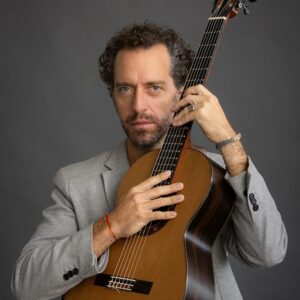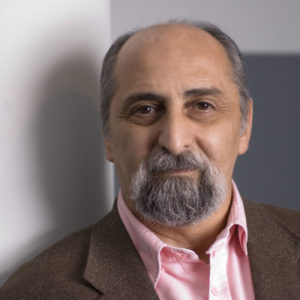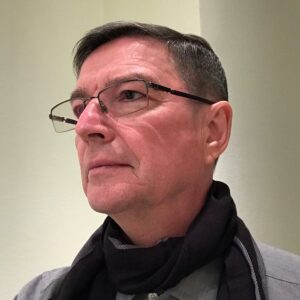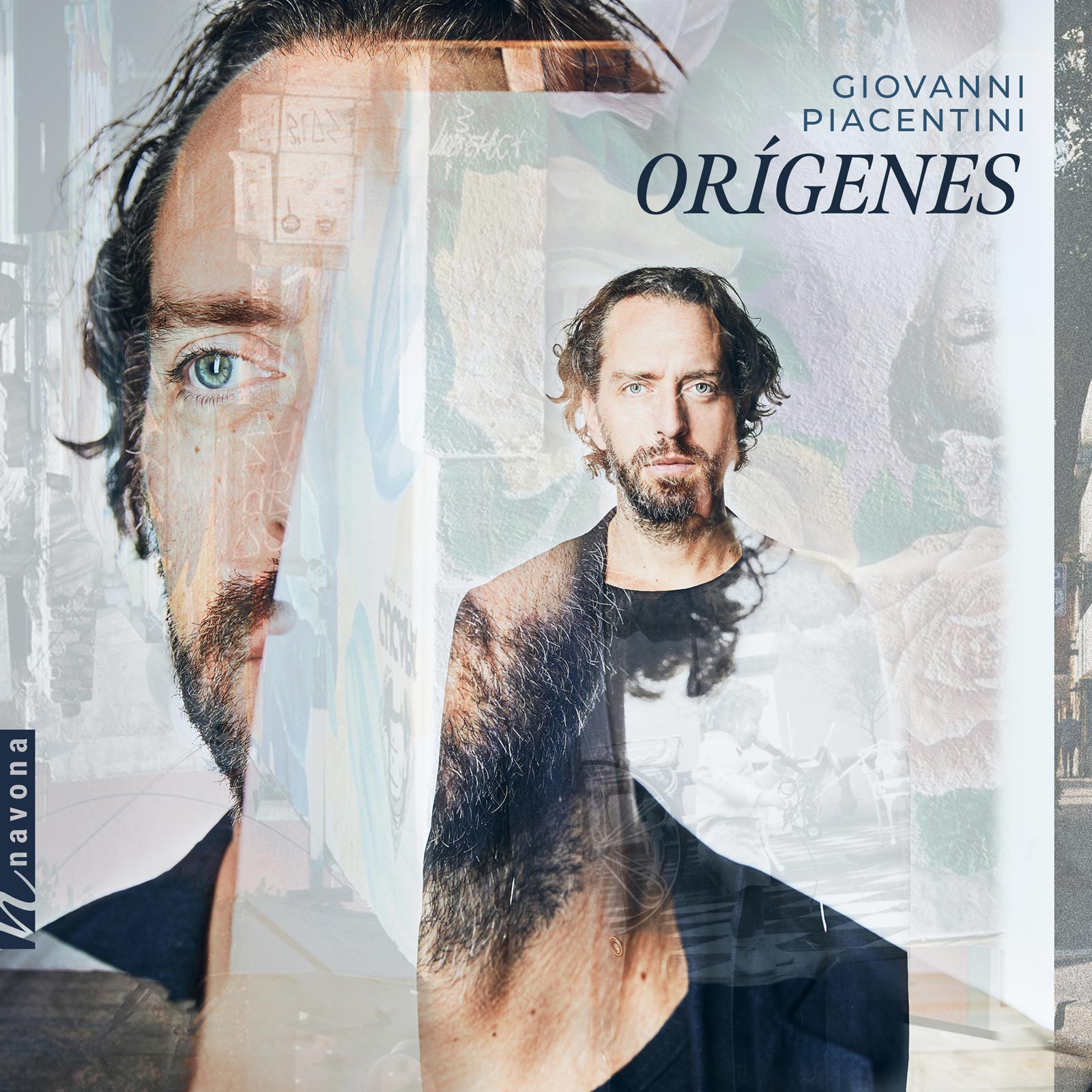Orígenes
Giovanni Piacentini guitar, composer
Composer-performer Giovanni Piacentini’s ORÍGENES is an exploration of the spirit of the Americas through the guitar. Spanish colonizers introduced string instruments like guitars and vihuelas when they arrived in America, which in turn gave rise to a series of indigenous instruments across the continent such as the Colombian tiple, the Mexican jarana, and the Panamanian mejoranera, to name a few. This blending of American and European cultures is at the heart of ORÍGENES. Drawing on the contributions of legendary guitar composers like Manuel M. Ponce, Heitor Villa-Lobos, and Astor Piazzolla, Piacentini’s ORÍGENES contributes a fresh perspective to this musical legacy.
Listen
Stream/Buy
Choose your platform
Track Listing & Credits
| # | Title | Composer | Performer | |
|---|---|---|---|---|
| 01 | Choro No. 1 | Heitor Villa-Lobos | Giovanni Piacentini, guitar | 4:53 |
| 02 | Danza Característica | Leo Brouwer | Giovanni Piacentini, guitar | 2:02 |
| 03 | Vals Venezolano No. 3 “Natalia” | Antonio Lauro | Giovanni Piacentini, guitar | 2:35 |
| 04 | Suite Montebello: I. Una Flor en la Laguna | Julio Cesar Oliva | Giovanni Piacentini, guitar | 3:56 |
| 05 | Suite Montebello: II. Tisú | Julio Cesar Oliva | Giovanni Piacentini, guitar | 3:18 |
| 06 | Suite Montebello: III. Floresta | Julio Cesar Oliva | Giovanni Piacentini, guitar | 3:53 |
| 07 | Légèreté | Giovanni Piacentini | Giovanni Piacentini, guitar | 2:53 |
| 08 | Prelude and Dance: I. “Prelude” | Ferdinando DeSena | Giovanni Piacentini, guitar | 2:19 |
| 09 | Prelude and Dance: II. “Dance” | Ferdinando DeSena | Giovanni Piacentini, guitar | 3:14 |
| 10 | New Allemande | Giovanni Piacentini | Giovanni Piacentini, guitar | 1:59 |
| 11 | Una Limosna por el Amor de Dios | Agustin Barrios Mangoré | Giovanni Piacentini, guitar | 3:43 |
| 12 | Scherzino Messicano | Manuel M. Ponce | Giovanni Piacentini, guitar | 2:16 |
| 13 | Cuiden su Vida | Manuel M. Ponce | Giovanni Piacentini, guitar | 2:40 |
| 14 | Cielito Lindo | Quirino Mendoza y Cortés arr. Giovanni Piacentini | Giovanni Piacentini, guitar | 2:27 |
| 15 | Preludio No. 1 | Heitor Villa-Lobos | Giovanni Piacentini, guitar | 4:38 |
| 16 | Selva Adentro | Giovanni Piacentini | Giovanni Piacentini, guitar | 3:04 |
| 17 | That’s an Understatement | John Carollo | Giovanni Piacentini, guitar | 3:09 |
| 18 | Verano Porteño | Astor Piazzolla | Giovanni Piacentini, guitar | 5:32 |
| 19 | Sunburst | Andrew York | Giovanni Piacentini, guitar | 3:40 |
| 20 | The Nomad (Bonus Track) | Giovanni Piacentini | Giovanni Piacentini, guitar | 2:24 |
Cover Photography Anna Azarov
Recorded at Chateau Granville Studios in Los Angeles CA
Recording Session Producer and Engineer Giovanni Piacentini
Mixing Stuart Schenk, Giovanni Piacentini
Mastering Melanie Montgomery
© 2023. All rights reserved by the composers.
Executive Producer Bob Lord
A&R Director Brandon MacNeil
VP of Production Jan Košulič
Producion Manager Martina Watzková
Audio Director Lucas Paquette
VP, Design & Marketing Brett Picknell
Art Director Ryan Harrison
Design Edward A. Fleming, Morgan Hauber
Publicity Aidan Curran
Digital Marketing Manager Brett Iannucci
Artist Information

Giovanni Piacentini
Featured in the Los Angeles Times in 2021, Giovanni Piacentini is a composer, performer, educator, and advocate for the music of others. Recently praised as “paying homage to the important cultural heritage of music in the west” by Forbes magazine, his original music has been described as “able to encapsulate tiny, winsome worlds as if passing through a gallery of paintings” (Winnipeg Free Press), and as “stunningly beautiful with accessible compositional language”(The Clarinet Magazine). Piacentini has established himself as a significant voice in Latin American classical music.

Ferdinando DeSena
Ferdinando DeSena is a Miami-based composer who was born in Brooklyn NY. His earliest musical experiences were with neighborhood pop, rock, and doo-wopp groups. He worked as a musician in Ithaca NY for 13 years, playing in several regional bands as keyboard player and lead singer. His final group was Uptown Revue, which he led for seven years.

John A. Carollo
John A. Carollo was born in Torino, Italy and brought to the United States by his adoptive parents. When he was in grade school, he studied classical piano and sang in the church choir. While attending college in San Diego CA, he studied music and psychology. During this time, Carollo took piano lessons and began composing his first piano works. He graduated from San Diego State University being granted a master’s degree in clinical psychology.
Notes
The Spirit of the Americas through the Guitar
The arrival of the Spanish colonizers in America introduced string instruments (guitars, vihuelas, etc.), among the indigenous and later Creole population of the New Continent, who adopted it in its musical forms.
In turn, this new approach gave rise to a series of indigenous instruments that are now part of the guitar family. Instruments such as the Colombian tiple, the Mexican jarana, the Panamanian Mejoranera, the Peruvian-Bolivian charango, the Cuban tres, the Puerto Rican cuatro, etc. This technological and cultural fusion became, over time, a fundamental element of the folklore of the Americas itself.
In this way, after the various struggles for independence in different territories of the continent, the “cultured” music of these “new” countries was sheltered by the musical nationalism of the late 19th century. The composers that I present in this program looked for sources of inspiration in their own folklore and used the guitar as a means to express this meeting of two worlds.
The importance and development of the Spanish classical guitar in Latin America during the 20th century is shown by the fact that Andrés Segovia considered the Mexican Manuel M. Ponce (1882/1948) to be the best guitar composer of all time — a pianist, composer, conductor, and musical critic who played such an important role in the artistic history of his country, and whose work, both for its length and quality, is currently the cornerstone of the repertoire of guitarists from all over the world.
Along with him, composers and performers stand out whose work helped to cement this new genre that is born from American and European cultural integration — figures such as the Brazilian Heitor Villa-Lobos (1887/1959), the Argentine Astor Piazzolla (1921-1992), and the Paraguayan Agustín Barrios Mangoré. We can include in this list contemporary composers whose main means of expression is the guitar: the Cuban Leo Brouwer (1939), the Mexican Julio Cesar Oliva, and, in my humble contribution to this historical legacy, I include myself as a faithful apprentice of these important figures and as a Mexican composer interested in disseminating this important cultural facet of humanity.
— Giovanni Piacentini

